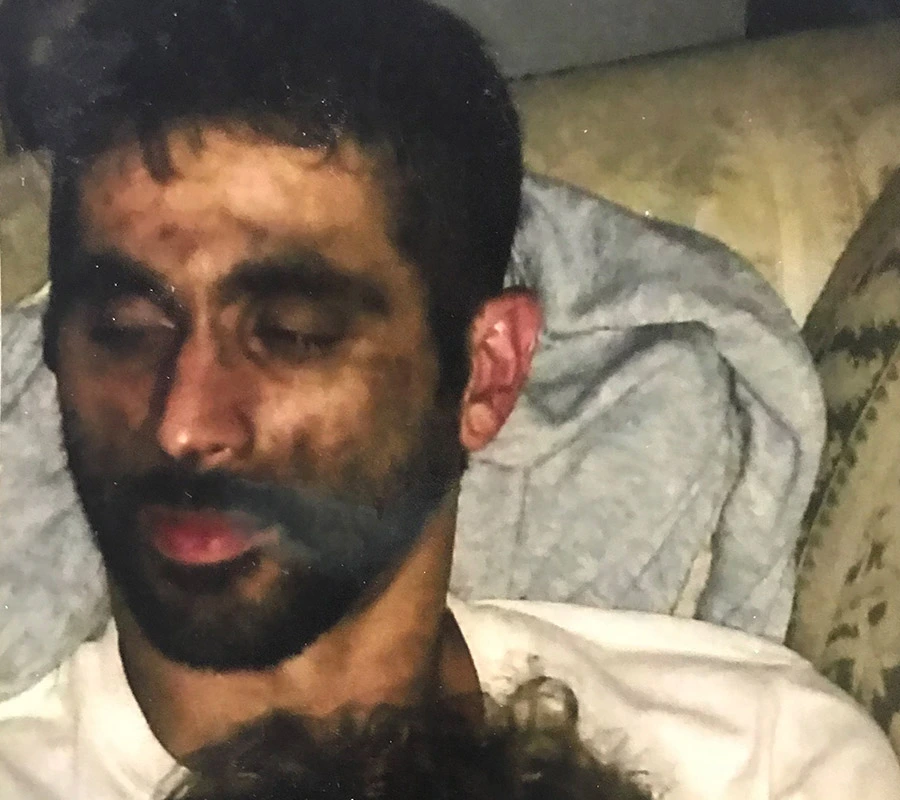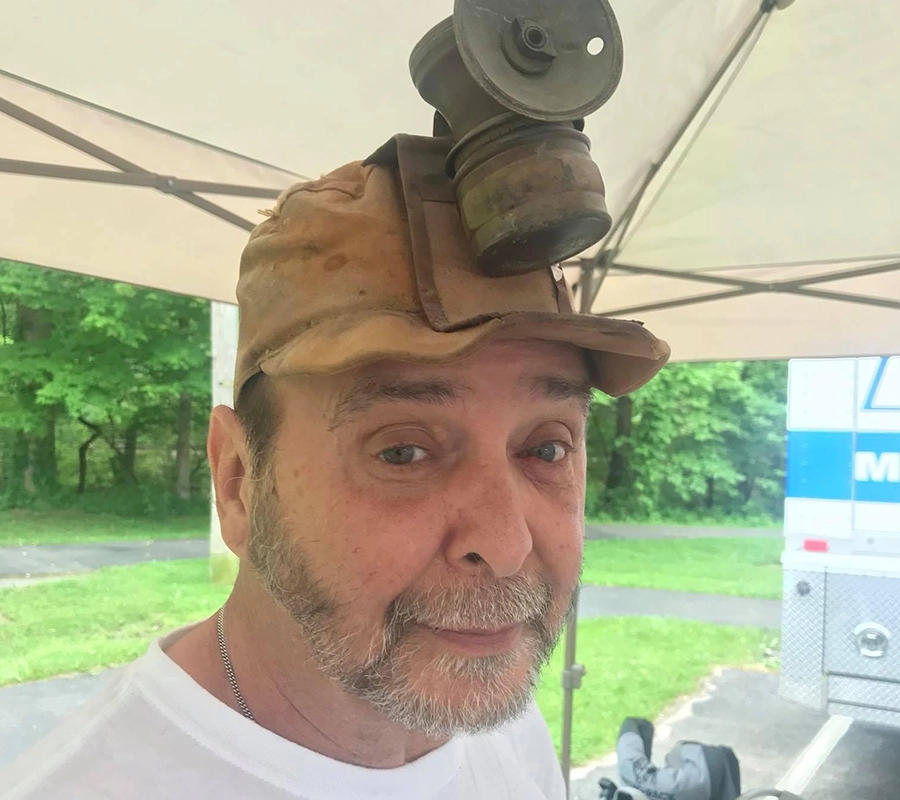For 37 years I mined coal to keep the lights on for everyone above ground. I guess you could call it a family business because my dad and my grandpa were also miners. Back in the 1970’s and in West Virginia it was the job to have if you wanted to make money. Mining was a good paying job, and your family would get to do things, to have things, that others couldn’t afford if you worked in a mine. But it’s dark, damp, dusty and there’s nothing clean when you go four or five miles underground. It’s not a pleasant environment. Some people hired wouldn’t even last the first day before they quit. Back then, you never heard much about black lung or that you were working in an environment that could make you sick for the rest of your life.
Q: What were the early warning signs that something was wrong?
It came on gradually at first. When I was 52, I noticed that I was getting out of breath more quickly than I used to. I used to be able to cut the whole grass without any trouble and then I started to have to stop and take breaks. Before long, I was only cutting half the grass and then I couldn’t keep going. I learned that I can’t let myself get out of breath because it takes too long to get my breath back, so I started to pace myself.
I knew something was wrong and it wasn’t old age. I blame it on the mining and the dust I was breathing all those years. The coal companies didn’t tell me, nobody told me it could harm me. Back in the 1980’s, as a supervisor, I was filling out forms for some of the other miners. Employees that had slowed down and were unable to perform their job in the same way they had been. In 2000, my doctor diagnosed me with black lung.
Q: How has your life changed since being diagnosed?
It’s a shame that I can’t play with my grandkids like I want to. It’s harder to do things now because I get short of breath so easily.
I feel like I have to constantly fight for the healthcare and resources I need, that other miners need, to live with black lung. Most people don’t even know anything about black lung. I’m President of a local black lung association group, one of seven in West Virginia, and we go to Washington, D.C. to advocate for our healthcare needs. We have to explain to the people there what black lung is and why the fund created to support patients with black lung that is paid by the coal industry per ton of coal mined must continue to go toward supporting people who have black lung. It can be hard, feeling like we’re the only ones fighting for care.
“Black lung disease is preventable,” shared Albert Rizzo, MD, Chief Medical Officer for the American Lung Association and a pulmonologist who treats lung disease patients in Delaware. “Yet more coal miners are being diagnosed with this lung disease than we’ve seen since we began tracking black lung in the 1970s. We must do more to protect coal miners from breathing in coal mine dust and endeavor to detect early warning signs of the disease.”
Q: What else do you wish people knew about black lung?
People don’t think about coal mining when they turn on their lights or television. All the things people enjoy have come at a cost to the miners. Back in my day, mining was hard, brute manual labor. Every cinderblock of coal had to be picked up and put in a car and then unloaded again by hand. Nowadays they use fork lifts and pallets. Times have changed and it’s gotten easier but there is still the same amount of dust.
The thing about black lung is it gets worse, not better. And the number of people getting black lung is rising. It’s going to take all of us working together to prevent miners from getting black lung and to support the miners who have already been exposed.
Learn more about black lung at Lung.org/lung-health-diseases/lung-disease-lookup/black-lung
Blog last updated: October 28, 2025




